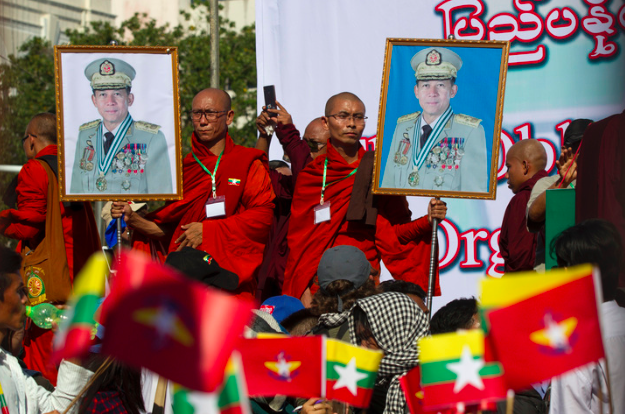Living in a country where social justice issues are not only talked about, but dealt with in hopes of being brought to justice is a norm for Americans, but can be a luxury for other countries.
Sexual abuse and inequality of gender is not something that is limited to strangers and the workplace. The majority of people who are experiencing sexual assault, and unequal gender status in society, are subjected to this behavior by their significant others.
Myanmar, a country in Southeast Asia, previously known as Burma, is one of the many countries in the world that has not made spousal abuse, illegal. For example, marital rape, is not even considered rape, but a wife’s duty to have sex with her husband.
–Stephanie Miedema and Tharaphi Than
Not only are women in Myanmar exposed to sexual abuse, but they are living in a society where gender inequality is not only present, but fully accepted and supported by the government and its citizens.
Many of these societal beliefs stem from the old ancient practice of “hpon.” Hpon is the belief that all men are considered holy, spiritually superior, and worshiped. Women hold a complete opposite status quo of darkness, ill omens, and bad luck.
The societal beliefs are so deeply embedded, women are not even allowed to do laundry in the same space of men, in case of “contamination,” from their bad omens.
However, there are certain actions Myanmar women are allowed access to that are completely outlawed in other Asian countries, such as traveling alone without chaperone.
This leads to the question, what constitutes right and wrong? What constitutes to bad omens penetrating such “holy” men during regular practices and can we get involved without it being viewed as assimilation?
The truth is, many of these traditions are not fought, because they are that. Traditions. When activities have been going on for years and embedded within a culture, it can seem scary and unheard of to change a complete way of life. But it is 2018, and there are standards for what is acceptable and unacceptable.
In order to help those we feel are not receiving appropriate rights, we can provide information on what is acceptable and unacceptable in countries other than theirs.
A first step is starting with education. The sooner the people of Myanmar are educated on the options available outside of hpon, they will be able to come to their own conclusions on right, wrong, acceptable, or unacceptable.
Hundreds of thousands of people are fleeing Myanmar every day due to the realization of mistreatment.
The United States can be of assistance by providing a helping hand to the citizens of Myanmar, who have fled and taken refuge in neighboring countries.
Bangladesh has been flooded with thousands of refugees in the last six months. In May of 2018, the United States donated more than $50 million in humanitarian relief to Bangladesh and those refugees hoping to return to their homes.
These humanitarian relief efforts were on both sides of the bordering countries, Bangladesh and Myanmar.
In Bangladesh, the US provided emergency food services were provided, as well as vouchers and food stamps for refugees to purchase and eat food.
As for the refugees in Myanmar, the humanitarian services were based mainly on emergency care, such as medical treatments and shelters.
It is our moral duty as a country to help each other. In a country where we have access to not only justice, but freedom to think freely, it is our moral duty to continue the humanitarian work.
